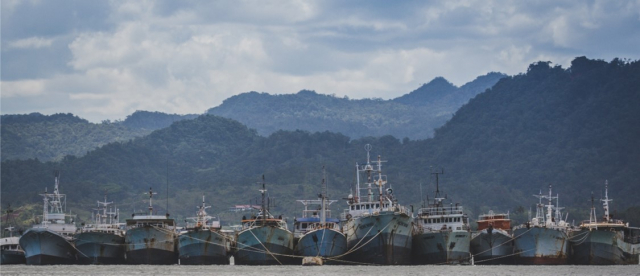Project outline
The project seeks to better understand the socio-economic interlinkages between ocean/distant water and nearshore fisheries with regard to the overuse of fish resources in Fiji. This increasing overexploitation has drastic cumulative consequences for the country, relying heavily on these natural assets (direct/indirect). The larger domestic (Fijian-flagged) as well as the foreign (mostly Asian/Chinese) fleets are catching pelagic species such as tuna (e.g., albacore and skipjack), for global export. Based on explorative fieldwork in artisanal and community-based fisheries, we seek to better understand local adaptation strategies to these changes. Social-ecological research includes interviews with local stakeholders in Suva, workshop participation, discussions with grassroot non-governmental organisations, attending student seminars at the University of the South Pacific (School of Marine Studies), and analyzing policy, literature and media documents.
Objectives and questions
Applying our focus on artisanal and community-based fisheries in Fiji, mainly on the islands of Gau, Kadavu, Beqa and Viti Levu, we aim to (1) gain a better understanding of the socio-economic, -cultural (and ecological) interlinkages and dependencies between ocean and coastal fisheries across a number of local settings in Fiji and, (2) get a deeper insight into the relevance of offshore fisheries for coastal marine resource use and management.
Preliminary and exemplified findings
More pragmatic fishing behavior can be seen, including transforming fishing techniques: FADs can become a boundary object for opening dialogue between inshore + offshore spaces; MSC certification is advancing due to ministerial support and is ‘pushing’ to change people’s behaviour on various levels from exporters to local consumers; Pole-and-line-fishery (one-by-one) seems very unlikely to be (re-)introduced.
All of these intend to increase the benefits from offshore fishery to the country and its population but have various prospects of success.
Project Partner |
|---|
|
Dr. Elodie Fache (UMR GRED, IRD - Institut de Recherche pour le Développement, France) School of Marine Studies, The University of the South Pacific, Laucala Bay Campus, Suva, Fiji |





